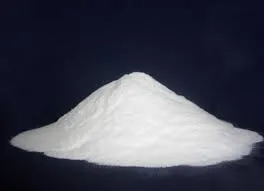Understanding Industrial Grade HPMC Benefits and Applications
Hydroxypropyl Methylcellulose (HPMC) is a versatile cellulose ether widely used in various industries due to its unique properties. Industrial grade HPMC specifically refers to a high purity form of this compound tailored for commercial applications. In this article, we will explore the benefits, properties, and various applications of industrial grade HPMC.
What is HPMC?
HPMC is a non-ionic, water-soluble polymer derived from cellulose. The modification of cellulose to produce HPMC involves partial hydrolysis and etherification, resulting in a compound that boasts remarkable thickening, binding, and film-forming capabilities. Its ability to dissolve in cold water makes it an attractive choice for numerous applications, especially in industries requiring high-performance materials.
Benefits of Industrial Grade HPMC
1. Versatility One of the primary advantages of industrial grade HPMC is its versatility. It can be utilized in a wide range of products, from construction materials to food and pharmaceutical formulations. This adaptability makes it a valuable ingredient across many sectors.
2. Enhanced Performance HPMC enhances the performance of various formulations. Its thickening properties improve the texture and consistency of products, while its binding abilities ensure stability. This is particularly important in applications such as tile adhesives and coatings, where uniformity is crucial.
3. Water Retention Industrial grade HPMC exhibits excellent water retention properties, making it indispensable in construction applications. This characteristic helps to maintain moisture during the curing process of cement and plaster, which can significantly improve the strength and durability of construction materials.
4. Non-toxic and Biodegradable HPMC is non-toxic and biodegradable, making it a sustainable choice for many industries. This ecological advantage is increasingly important as companies strive to meet environmental regulations and consumer demands for greener products.
industrial grade hpmc

5. Thermal Stability HPMC retains its properties across a wide temperature range, making it suitable for various conditions. This thermal stability ensures that products maintain their performance, even under extreme temperature fluctuations.
Applications of Industrial Grade HPMC
1. Construction Industry In the construction sector, industrial grade HPMC is commonly used in the formulation of adhesives, sealants, and mortars. Its water retention properties enhance the workability of these materials, facilitating easier mixing and application. The result is improved adhesion and reduced cracking, even under challenging conditions.
2. Pharmaceuticals HPMC is utilized as a thickening agent and binder in pharmaceuticals. Its ability to form gels makes it particularly useful in the production of controlled-release drug formulations. Moreover, HPMC is often used in coating tablets, enhancing their stability and controlled release.
3. Food Industry In the food sector, HPMC acts as a thickening and emulsifying agent. It stabilizes emulsions, improves mouthfeel, and extends shelf life. As a food additive, it is known as E464 and is used in products such as sauces, dressings, and baked goods.
4. Personal Care Products HPMC is widely used in the formulation of personal care products such as lotions, creams, and shampoos. Its emulsifying properties contribute to the desired texture and stability of these products, enhancing the overall consumer experience.
5. Cosmetic Industry In cosmetics, HPMC is valued for its film-forming properties. It is often incorporated into makeup formulations to improve adhesion and longevity, ensuring that products remain intact throughout the day.
Conclusion
Industrial grade HPMC is a valuable compound with a wide range of applications across various industries. Its unique properties, including versatility, water retention, and non-toxicity, make it an essential ingredient in construction, pharmaceuticals, food, and personal care products. As industries continue to seek sustainable and high-performance materials, the demand for HPMC is expected to grow, confirming its importance in modern manufacturing processes.
-
Rdp Powder: Key Considerations for Wholesalers in the Building Materials IndustryNewsJul.08,2025
-
Key Considerations for Wholesalers: Navigating the World of Hpmc - Based ProductsNewsJul.08,2025
-
Hpmc Detergent: Key Considerations for WholesalersNewsJul.08,2025
-
Key Considerations for Wholesalers: China Hpmc For Tile Adhesive, Coating Additives, Concrete Additives, and MoreNewsJul.08,2025
-
Crucial Considerations for Wholesalers: Navigating the World of Construction MaterialsNewsJul.08,2025
-
Key Considerations for Wholesalers Sourcing Additive For Cement, Additive For Concrete, Additive For Putty from Additive Manufacturer Shijiazhuang Gaocheng District Yongfeng Cellulose Co., Ltd.NewsJul.08,2025




